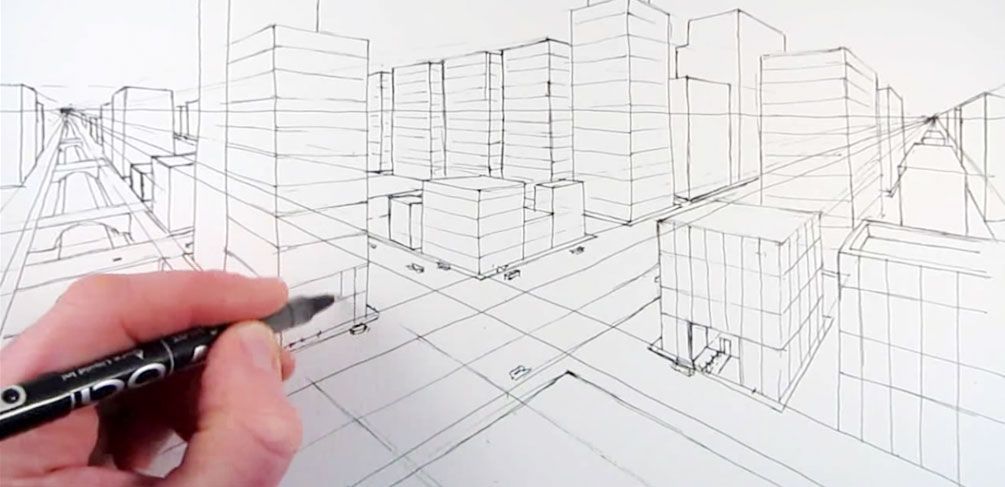NATURE OF ARCHITECT’S WORK | An Architect Explains
An Architect is a licensed individual who leads a design team in the planning and design of buildings and participates in the oversight of the building construction. The word “architect” comes from the Latin word, ‘architectus’, which in turn is derived from Greek ‘arkhitekton’ (arkhi – chief + tekton – builder). In its broadest sense, an Architect is a person who translates a user’s requirements into a built environment.

Architects are trained in many areas, from historic preservation to structural engineering. Like doctors and lawyers, Architects have completed university programs and lengthy internships, and have passed rigorous exams in order to be licensed. In India, an Architect is required to have completed a 5 year Bachelor of Architecture course (B.Arch.) and s/he should be registered with the Council Of Architecture to be able to practise. As an Architect, I have described the work of an Architect under the following headings to give you an idea of the scope and nature of his/her work:
What is the primary object of an Architect?
How is Architecture different from Civil Engineering?
What is the nature of work of an Architect?
What are the ideal personality traits required of an Architect?
Give a brief summary of the scope of work of an Architect?
WHAT IS THE PRIMARY OBJECT OF AN ARCHITECT?
To design a shelter: Providing for the spatial and shelter needs of people by the creative organisation of materials and components in a land- or city-scape while dealing with mass, space, volume, form, texture, structure, light, shadow and materials.
To see completion of his vision: Achieving an end which is functional, economical, practical and with artistic and aesthetic aspects, while considering pragmatic elements such as cost, construction limitations and technology.
HOW IS ARCHITECTURE DIFFERENT FROM CIVIL ENGINEERING?
Creative: Unlike Civil Engineering design, Architecture has as its primary object, the creative manipulation of materials and forms using mathematical and scientific principles.
Co-ordination of technical and non-technical people: Though architectural design essentially, is a product of an Architect’s individual mind, it is realized through the association of experts from allied fields who contribute in the process of construction. Any built structure is an outcome of close coordination and participation of a number of people, technical and non-technical, including Architects, Contractors, Surveyors, Designers, Structural Engineers, Plumbing, Sanitary, Electrical, Acoustical and Air-Conditioning Consultants, along with Bricklayers, Masons, Carpenters, Electricians, Plumbers etc.
WHAT IS THE NATURE OF WORK OF AN ARCHITECT?
Interdisciplinary field: The work of an Architect is an interdisciplinary field, drawing upon mathematics, science, art, technology, social sciences, politics and history and is often governed by the Architect’s personal approach or philosophy. This calls for originality, creativity, conceptualization, perception, aesthetic values and a holistic judgment of people and places.
Land surveys: An Architect is also called upon to prepare land surveys, evaluate lands and buildings for insurance, mortgage or transfer purposes.
Technical advice: He may give technical advice on planning, improving or beautifying landscapes, highways, entire towns, estates, historical monuments, etc.
Outdoor and Indoor work: An Architect has to do outdoor as well as indoor work. He has to keep track of developments of new methods and materials, analyze their limitations and potential.

WHAT ARE THE IDEAL PERSONALITY TRAITS REQUIRED OF AN ARCHITECT?
An Architect is ideally required to have the following traits:
Pragmatic: He should have a rational and pragmatic approach.
Analytical: He should have analytical and mathematical ability to help him solve design problems and handle building cost and estimations.
Imaginative: He should be a imaginative- a creative artist with an interest in designing. The ability to sketch, free hand, though not very important is beneficial while explaining to the clients the very intricate details of the structure.
Observant: He needs to be observant and aware of surrounding social and environmental factors.
Knowledgeable: He should show a keen desire to update knowledge of latest developments in structural techniques and materials. He should have good understanding of legal and financial matters.
Commanding: He should have the ability to issue clear instructions and explanations to team-mates, clients and contractors.
Perceptive: He should have a good perception of social and psychological attitudes, and
Authoritative: He should have an authoritative personality.

GIVE A BRIEF SUMMARY OF AN ARCHITECT’S SCOPE OF WORK?
Receives instructions from the Client: on the type, function, capacity and approximate cost of the building required.
Surveys and inspects the site: of the proposed building and obtains an accurate site plan.
Prepares a sketch scheme: of the floor plans, the elevations, and the perspective drawings. Many such schemes may have to be produced before one is finally approved.
Approval of the plan: is obtained from local statutory bodies and local authorities.
Contract documents: are drawn up including detailed drawings and specifications and estimates of costs.
Site visits: Once the Contract is awarded to a Building Contractor, the Architect has to pay periodic visits to the building site to supervise the work in progress, issue instructions to the Contractor’s Site Supervisor to discuss any difficulties that may have come up.
Checks Bills: Checks the Contractor’s bills for payment.
This is just a brief summary of the scope of services rendered by an Architect. To understand in detail, the range of services Architects provide, read about it here:
Also read about:
- Educational Qualifications Of An Architect
- Statistics Of Architects In India
- List Of Architects In India
- Famous Indian Architects
- Famous International Architects
- Why You Should Involve An Architect
- Unique Assets of An Architect
- Professional Fees Charged By An Architect
- Scale Of Charges Of An Architect
- Schedule Of Payment To An Architect
- Choosing An Architect
- Meeting With An Architect
If you found this post useful, all it takes is a simple click on the “pin it” “like,” “share,” “tweet,” or Google+ buttons below the post.


Hey there, do you have a Twitter page that I could follow? Gives thanks
Great information, Thank you so much